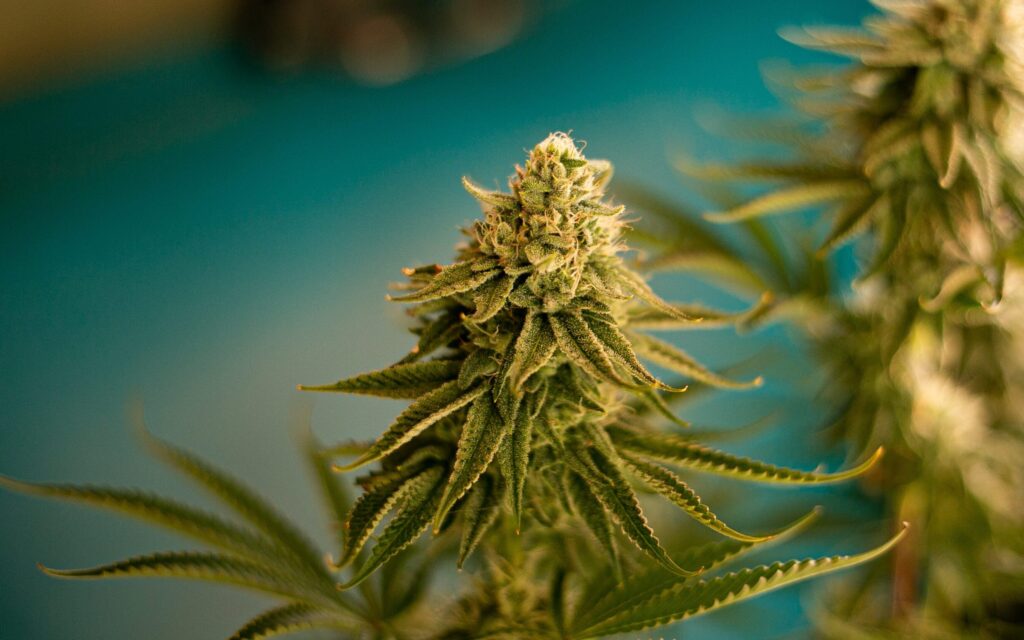A group of Republican legislators recently sent a letter to the Drug Enforcement Administration (DEA) asking for the agency to reject the recent recommendation to reschedule cannabis, which was suggested by the Department of Health and Human Services (HHS) on Aug. 29.
The list included lead authors Sen. James Lankford (Oklahoma) and Rep. Pete Sessions (Texas), along with signatures from Sen. M. Michael Rounds (South Dakota), Sen. James E. Risch (Idaho), Sen. Marsha Blackburn (Tennessee), Sen. Mike Crapo (Idaho), Sen. Ted Budd (North Carolina), Sen. Markwayne Mullin (Oklahoma), Sen. Tom Cotton (Arkansas), Rep. Chuck Edwards (North Carolina), Rep. Robert B. Aderholt (Alabama), Rep. Hal Rogers (Kentucky), Rep. Earl L. Carter (Georgia), and Rep. Andy Biggs (Arizona).
“The recommendation to remove marijuana from the DEA’s list of dangerous Schedule I drugs is not based on science—it’s based on an irresponsible pro-pot agenda,” Lankford wrote on social media and sharing the letter.
“We write to urge the Drug Enforcement Administration (DEA) to reject any petition or request to remove marijuana from Schedule I of the Controlled Substances Act (CSA). Any effort to reschedule marijuana should be based on proven facts and science—not popular opinion, changes in state laws, or the preferred policy of an Administration,” the letter states.
One of the letter’s arguments against rescheduling cannabis cites the National Institute on Drug Abuse (NIDA), stating that “30% of marijuana users have marijuana use disorder, who are severely addicted to the drug.” The authors mention the rise in THC in products today compared to 25 years ago. “These facts indicate that marijuana has a high potential for abuse and that the risk is only increasing,” they added. Last month, NIDA reportedly signed off on the HHS recommendation.
The letter authors also make claims that cannabis “does not have a currently accepted medical use.” While it mentions the single Food and Drug Administration (FDA)-approved cannabis-derived drug (Epidiolex), and three synthetic cannabis drugs (Marinol, Syndros, and Cesamet), the letter states that substances only have medical value if they are approved by the FDA. The authors also added that previously in 2016, the DEA rejected two petitions for cannabis rescheduling, and the HHS agreed. “The rejection letter stated, ‘At this time, the known risks of marijuana use have not been shown to be outweighed by specific benefits in well-controlled clinical trials that scientifically evaluate safety and efficacy,’” the letter stated. “We believe this analysis is still true today. In fact, HHS recommended at the time that DEA reject these petitions and that marijuana remain in Schedule I.”
The signatories state that nothing has changed over the past seven years, and believe that “the situation has gotten worse,” citing an increase in child hospitalizations due to accidental cannabis consumption, and the negative effects of cannabis on youth teenagers.
“It is irresponsible for HHS to recommend that marijuana be removed from Schedule I,” they concluded. “It would also be irresponsible for DEA to act on this recommendation. Our country relies on DEA to enforce our nation’s drug laws. We ask you to uphold your mission by rejecting any effort to remove marijuana from Schedule I.”
The letter fails to mention the evidence of cannabis’ medical benefits for countless conditions, or its part in the War on Drugs and countless people affected by its Schedule I status.
Now that the HHS has provided the details of its recommendation to move cannabis from a Schedule I to Schedule III substance, the DEA will also conduct a scientific review.
These Republican legislators believe that cannabis should remain a Schedule I substance, which labels it as having no medical value, high potential for abuse, and places it among other substances including heroin, LSD, ecstasy, and more. Legislators who have continued to support cannabis in congress, such as Rep. Earl Blumenauer, believe that this is just the beginning. “This is a step in the right direction but it is not sufficient. I hope it is followed by more significant reforms. This is long overdue,” he said in a statement.
NORML Deputy Director Paul Armentano published an article explaining why rescheduling cannabis isn’t enough. “While some entities, particularly those involved in the commercial cannabis industry, have lauded the proposed change as a ‘giant’ step forward, others—like myself—have been far more restrained,” Armentano stated. “First, reclassifying cannabis to a lower schedule within the CSA continues to misrepresent the plant’s safety relative to other controlled substances such as anabolic steroids and ketamine (Schedule III), benzodiazepines (Schedule IV), or even alcohol, which is unscheduled.”
H/T: HighTimes.com



